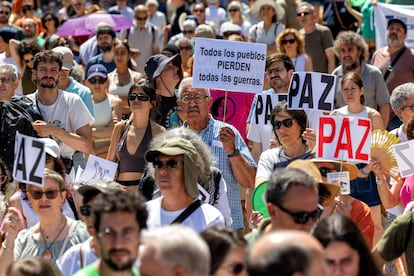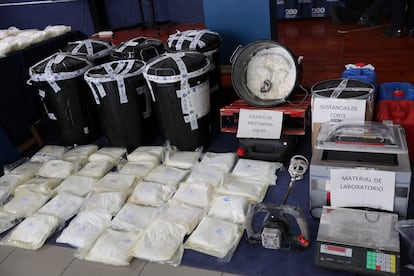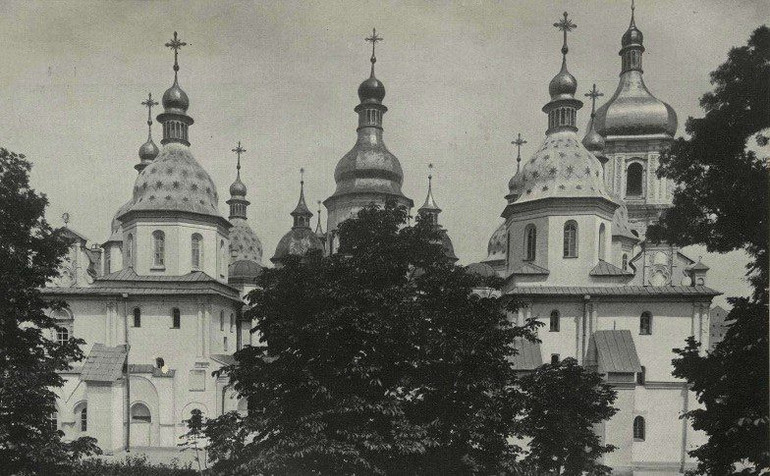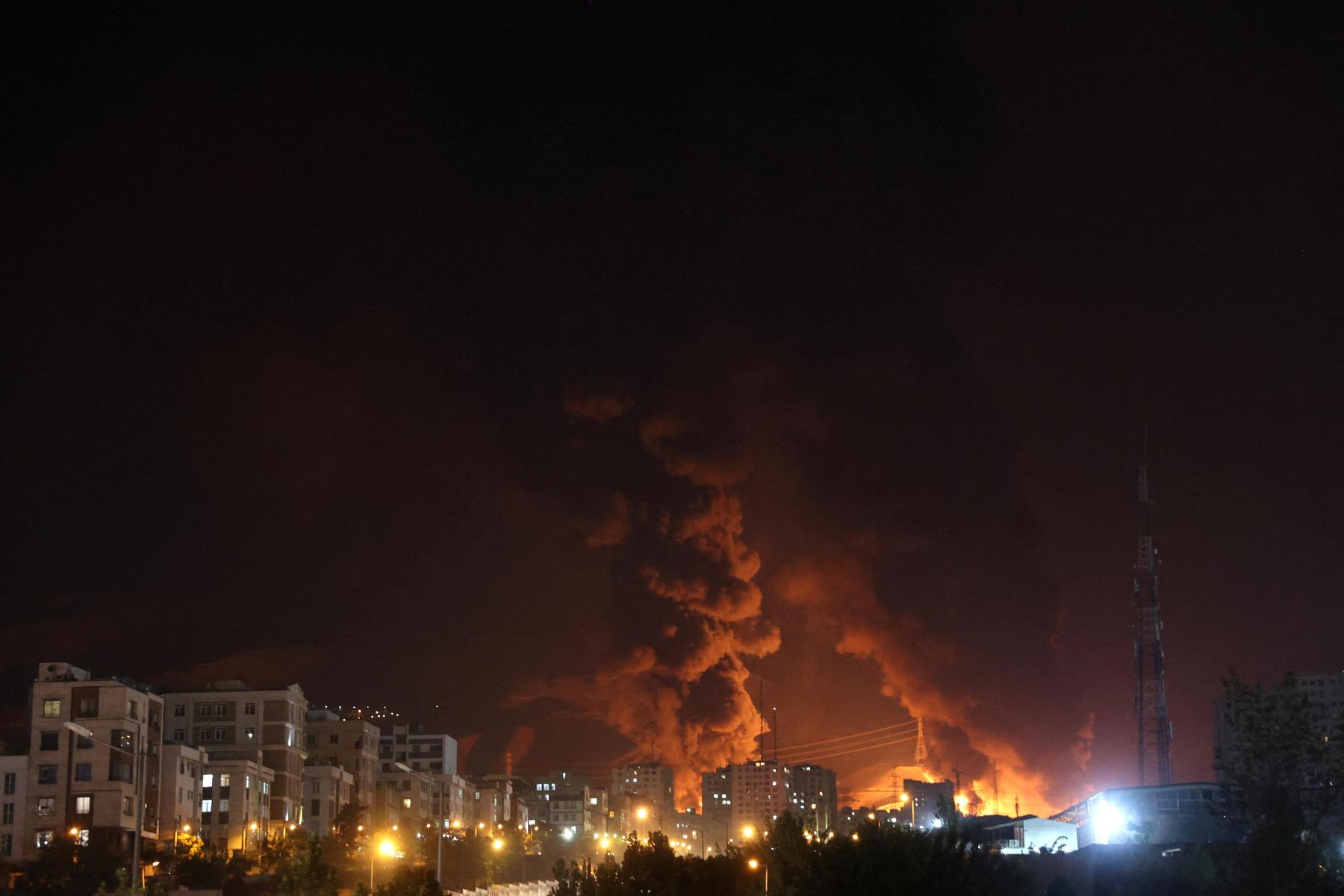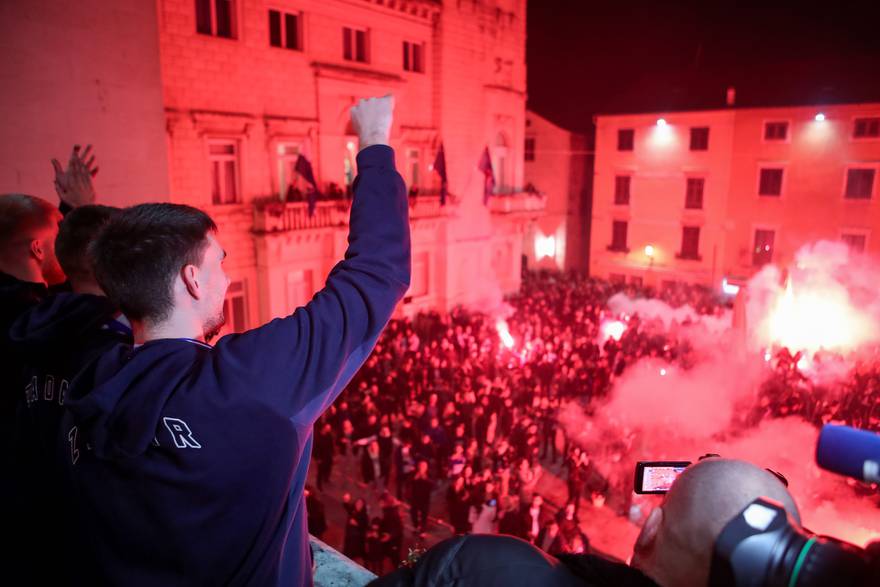The coalition creates with the rearme and purchases to Israel | Spain
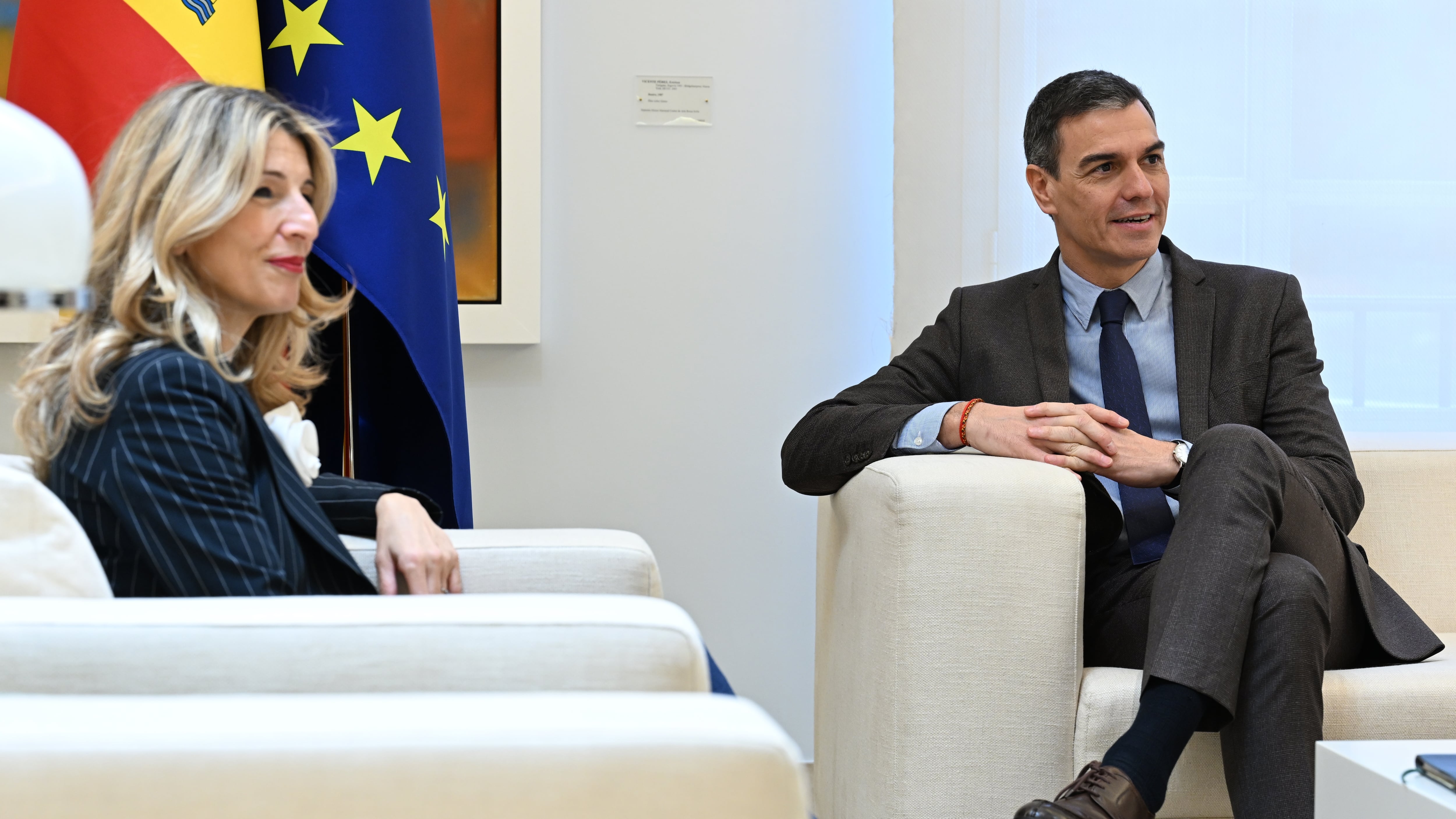
It was a very difficult week for the coalition. Although very few people knew it, and had not even been treated in the State Secretaries Commission, which the Council of Ministers prepares, Pedro Sánchez had decided to release the political bomb: The Government approved 10,471 million euros more For safety and defense spending, with the aim of reaching 2% of GDP this year, two earlier than expected.
It is a huge amount. To give an idea, although GDP has grown a lot since then, José Luis Rodríguez Zapatero, with his famous “I cost me what it costs me” from May 2010, announced for 2011 a cut of 10,000 million eurosa similar amount. That adjustment sank the PSOE for many years, so much that it did not return to win elections until 2019, with Sánchez in front. This is not an adjustment, Sanchez guarantees that social spending will not be touched, but it is still a huge leap in a very delicate issue for a progressive coalition with The background of the European rearme.
And yet, although it seemed that this matter would seriously be dangerous, everything was agreed within the government, and the Council of Ministers was quite quiet. The day before, Sánchez and Yolanda Díaz, second vice president and visible head of the minority partner of the coalition, had had a long political conversation. The president explained that Spain has to fulfill its international commitments, which cannot be left out, that needs to respond to the call of its northern partners and east of Europe, which require expanding the expense in defense, and NATO itself, which is pressing. Díaz replied that adding would not support this increase in spending and unmotable with the usual formula, with observations in the Council of Ministers, but agreed that nothing would break.
In the Council Ernest Urtasun spoke, Minister of Culture, setting the position of adding, appealing to the observationsActions, in which there is talk of an increase in « truly exormerged spending without the basis in the EU for a true coordination of the armies of the Member States, ». That is, he showed the rejection of adding, but without tensions. There was no delicate cross. Everything was agreed in advance. Sanchez showed respect for the position of his partners, as he has made publicly several times – « it is a discrepancy of 40 years ago, » he said in Brussels, remembering that the United Left (IU) was born precisely After the 1986 NATO referendum– And he raised something similar to what he said in public, that is, that Spain must be supportive with its partners.
« Sánchez’s message is clear: Europe was solidarity with Spain in Covid, there are European funds, which have made us grow and continue to do so, and now we are the ones who must close the shoulder, » says a government member. « In addition, only 20% of the plan is armament, the rest is an industrial development or improvement of military salaries. It is a very different response than the right or ultra -right. »
Everything was more or less within a control lane, although IU demanded to add more hardness in its opposition and it was already seen that the balance within the space to the left of the PSOE is very fragile with this matter. But then the auction came: the SER chain revealed that Interior maintained the contract to buy six million euros in bullets to an Israeli company that had promised to revoke. The news created the coalition, perhaps more than ever.
Almost all the greatest tensions in these five years have been on weapons. In 2022, before the NATO summit that was held in Madrid, the coalition was very close to breaking, because Díaz insisted on recording his rejection of Spain’s support for the expansion of the alliance, and the socialists opposed that that would be in writing because the Council of Ministers is a collegiate body.
This time the stability of the coalition was not only at risk, although several ministers agree that at any time a break was seriously raised, no matter how much IU came to drop it. The problem was that the crunch in the coalition, which has already sounded other times, added a very serious risk for the president’s own image in progressive sectors inside and outside Spain.
Sanchez had promised in Congress that there will be no purchase or sale of weapons with Israel and companies in this country as long as the Israeli military offensive in Gaza follow. He has recognized Palestine. He has joined the complaint against Israel in the International Criminal Court. And it moves throughout the world, especially in Arab countries, where it is welcomed with enthusiasm, as one of the world leaders who more clearly opposes Israel’s actions against the Palestinians and the aggressive policy of the outraged right of that country led by Benjamín Netanyahu. All that was questioned by the contract to buy bullets from an Israeli company with a very active participation in military actions in Gaza that has already left more than 50,000 dead.
Sánchez’s anger was monumental, according to various people who could talk to him. The department of Fernando Grande-Marlaska, a minister who, according to various sources, was not far from this decision, had at a time the stability of the coalition, worked carefully between Sánchez and Díaz, and the president’s own image in a matter as sensitive as the bombings on Gaza.
So Sánchez ordered to look for a solution to turn that decision that Interior said it was technically impossible to move. Sánchez and Add again, but also their teams: María Jesús Montero, Vice President First and Minister of Finance, and Diego Rubio, head of the president’s cabinet, put the machinery to the top to find a way out, Félix Bolaños, Minister of the Presidency and Justice, negotiated with adding, and finally a escape was found where interior had not found it: a little known body The entrance of bullets in Spain « for reasons of general interest. » And thus interior can claim this decision, outside the contract that annuls its effect, to terminate it.
Despite the criticisms of the PP, which argues that all the money will be lost, more than six million euros, the legal services of the government believe that with this formula you can avoid paying or at most to face some penalty not very large, because the material will never reach Spain.
As always that there is an apparently irresolvable tension in the coalition, Sánchez chose to find a solution that gives a good political exit to Díaz and in this case also to IU, the one that most pressed because its bases are especially sensitive to all these matters. He also did it with the anger for taxation in the IRPF of the minimum wage. If then the one who had to turn back, at least in part, was María Jesús Montero, this time Sánchez disallowed still much more evident to Great Marlaska, although in the Moncloa they insist that he will not change it or he will resign. « He is a good minister, » they point out in the president’s environment, who has always defended him in multiple crises. There does not seem to change government change, at least not for the moment.
The game ball has been saved. But in IU, where they are especially concerned and launch more and more alarm signs, they fear that things will be complicated much more in the coming months. In this veteran organization of the Spanish left, which is concerned about the future of a space now again fractional by the break between adding and Podemos, they fear that the coalition will have to swallow even larger toads after the NATO summit in The Hague (Netherlands) in June. There it will go far beyond 2%, fear in IU. And the political consequences of that in Spain are unpredictable. « We cannot accompany the PSOE on that path of NATO. Nobody wants to break this government and open the door to the ultra -right, but that balance will be very difficult, » they point out in IU. In adding, on the contrary, they believe that the coalition is showing a lot of maturity, and that the formula agreed between Sánchez and Díaz to continue agreeing this background discrepancy is valid.
And in the PSOE they believe that the scenario with the focus on international and in the battle against Donald Trump’s ultra -right is positive for the progressive government, because they also see the PP very out of play. The answer to that unknown will arrive in a few weeks in The Hague and in later days. But in the background there is something much more delicate, and it is the recomposition of the space to the left of the PSOE, absolutely decisive for the result of the next elections. Many things are moving there, and the tension by the European rearme is another piece in the key game for the future of the Spanish left.

